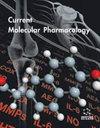Nrf2介导白藜芦醇对缺血再灌注损伤的影响
IF 2.9
4区 生物学
Q3 BIOCHEMISTRY & MOLECULAR BIOLOGY
引用次数: 0
摘要
::缺血再灌注损伤(IRI)是一种自相矛盾的现象,消除损伤源会造成额外的损伤。缺血会减少 ATP 生成和细胞内 pH 值,从而减少氧化反应,增加乳酸释放,激活无氧代谢。再灌注可恢复有氧呼吸并增加 ROS 的产生,导致跨膜转运功能失调、蛋白酶激活、DNA 溶解和蛋白质变性,从而导致细胞凋亡。Nrf2 是一种调节细胞炎症和氧化反应的转录因子。它被氧化剂和电介质激活,增强解毒酶的表达,维持氧化还原平衡。它还能激活 ARE,从而激活多个 ARE 调控基因,这些基因通过表现出对氧化剂和电介质的抵抗力而有利于细胞存活。Nrf2 通过产生第二阶段和抗氧化防御酶(包括 HO-1、NQO-1、谷氨酰半胱氨酸合成酶和谷胱甘肽合成的限速酶)来调节抗氧化防御系统。Nrf2 保护线粒体免受损伤,并在压力条件下支持线粒体功能。白藜芦醇是一种以芪为基础的化合物,对人体健康有多种益处,包括抗氧化、抗癌、抗肿瘤和雌激素/抗雌激素。白藜芦醇可通过包括 Nrf2/ARE 通路在内的几种信号通路防止 IRI。在此,我们回顾了有关白藜芦醇通过调节 Nrf2 信号通路防止 IRI 的机制的研究。本文章由计算机程序翻译,如有差异,请以英文原文为准。
Nrf2 Mediates Effect of Resveratrol in Ischemia-reperfusion Injury
:: Ischemia-Reperfusion Injury (IRI) is a paradoxical phenomenon where removing the source of injury can cause additional damage. Ischemia reduces ATP production and intracellular pH, reducing oxidative reactions, increasing lactic acid release, and activating anaerobic metabolism. Reperfusion restores aerobic respiration and increases ROS production, leading to malfunction of transmembrane transport, activation of proteases, DNA dissolution, and protein denaturation, leading to apoptotic cell death. Nrf2 is a transcription factor that regulates cellular inflammation and oxidative responses. It is activated by oxidants and electrophiles and enhances detoxifying enzyme expression, maintaining redox homeostasis. It also activates ARE, which activates several ARE-regulated genes that favor cell survival by exhibiting resistance to oxidants and electrophiles. Nrf2 regulates the antioxidant defense system by producing phase II and antioxidant defense enzymes, including HO-1, NQO-1, gglutamylcysteine synthetase, and rate-limiting enzymes for glutathione synthesis. Nrf2 protects mitochondria from damage and supports mitochondrial function in stress conditions. Resveratrol is a stilbene-based compound with a wide variety of health benefits for humans, including antioxidant, anticarcinogenic, antitumor, and estrogenic/antiestrogenic. Resveratrol protects against IRI through several signaling pathways, including the Nrf2/ARE pathway. Here, we review the studies that investigated the mechanisms of resveratrol protection against IRI through modulation of the Nrf2 signaling pathway.
求助全文
通过发布文献求助,成功后即可免费获取论文全文。
去求助
来源期刊

Current molecular pharmacology
Pharmacology, Toxicology and Pharmaceutics-Drug Discovery
CiteScore
4.90
自引率
3.70%
发文量
112
期刊介绍:
Current Molecular Pharmacology aims to publish the latest developments in cellular and molecular pharmacology with a major emphasis on the mechanism of action of novel drugs under development, innovative pharmacological technologies, cell signaling, transduction pathway analysis, genomics, proteomics, and metabonomics applications to drug action. An additional focus will be the way in which normal biological function is illuminated by knowledge of the action of drugs at the cellular and molecular level. The journal publishes full-length/mini reviews, original research articles and thematic issues on molecular pharmacology.
Current Molecular Pharmacology is an essential journal for every scientist who is involved in drug design and discovery, target identification, target validation, preclinical and clinical development of drugs therapeutically useful in human disease.
 求助内容:
求助内容: 应助结果提醒方式:
应助结果提醒方式:


